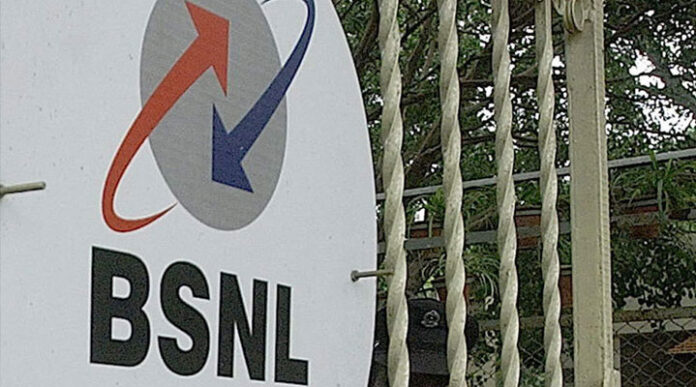It added that BSNL could have launched its fourth-generation services at least two years ago, had the telco been allowed to upgrade its 49,300 existing base transceiver stations (BTSs) into 4G BTSs. “Unfortunately, the government did not allow BSNL to upgrade its BTSs. This has severely hampered BSNL’s revival.”
NEW DELHI: The Bharat Sanchar Nigam Limited Employees Union (BSNLEU) has shot off a sharply worded letter to telecom minister Ashwini Vaishnaw alleging that the anti-BSNL and pro-private steps taken regularly by the government have led to the telecom PSU’s downfall, and the employees are not responsible for the present-day situation after the minister sternly warned top BSNL officials to either perform or perish.
“On 23 October 2019, the government announced a Revival Package for BSNL and MTNL. Allotment of the 4G spectrum to BSNL was a part of this Revival Package. However, BSNL was never able to take advantage of this, due to the roadblocks created by the government, in BSNL’s 4G launching,” P. Abhimanyu, general secretary, BSNLEU said in a letter dated August 8 to Vaishnaw.
The letter is also marked to telecom secretary K Rajaraman and BSNL CMD PK Purwar. ETTelecom has reviewed a copy.
It added that BSNL could have launched its fourth-generation services at least two years ago, had the telco been allowed to upgrade its 49,300 existing base transceiver stations (BTSs) into 4G BTSs. “Unfortunately, the government did not allow BSNL to upgrade its BTSs. This has severely hampered BSNL’s revival.”
Following this, the company floated a tender in March 2020 to procure 50,000 4G BTSs, which would have allowed BSNL to launch 4G by now, if the procurement materialized.
The tender though was canceled based on a “flimsy complaint” by the Telecom Equipment and Services Export Promotion Council (TEPC), Abhimanyu alleged.
Afterward, BSNL was directed to only procure equipment from Indian companies, despite the government knowing that no Indian vendor was having proven 4G technology, he said.
“When all the private companies, viz., Reliance Jio, Airtel, and Vodafone Idea are procuring their equipment from global vendors like Nokia, Ericsson, and Samsung, why BSNL alone should be directed to procure 4G equipment only from Indian vendors?,” the BSNLEU said.
As of May 31, BSNL held a market share of 9.85%, compared to the private telcos’ combined share of 89.87%, according to the Telecom Regulatory Authority of India (TRAI)’s latest data.
Early this year, BSNL awarded a Rs 550-crore worth of contract to TCS for setting up 6,000 sites, as a part of the public sector firm’s plans to deploy more than 1 lakh sites across the country for rolling out much-awaited commercial 4G network services.
Mumbai-based system integrator TCS-backed consortium has been shortlisted to supply radio and core network equipment to BSNL.
However, the All Unions and Associations of BSNL (AUAB) separately wrote to Vaishnaw on August 12 said that the purchase order placed by BSNL on March 31 for the procurement of 6,400 BTSs has not been accepted by TCS, raising serious apprehension as to whether the equipment to be supplied by TCS will match the quality of equipment deployed by private companies.
Recently, the Cabinet approved a revival package of Rs 1.64 lakh crore for BSNL, which includes Rs 44,993 crore for the administrative allocation of 4G airwaves.
Earlier, Vaishnaw had asked officials to start deploying the fifth-generation or 5G network, alongside 4G once indigenous core becomes available. BSNL would have 20 crore 4G and 5G subscribers, according to him.
State-owned R&D firm Centre for Development of Telematics (C-DoT) has been making progress in the development of a 5G non-standalone (NSA) Core which is expected to be ready by August end, and will be available for commercial deployment in 2023.
In October 2019, the Cabinet, as a part of the initial revival package approved Rs 69,000 crore principally for the voluntary retirement scheme (VRS).





